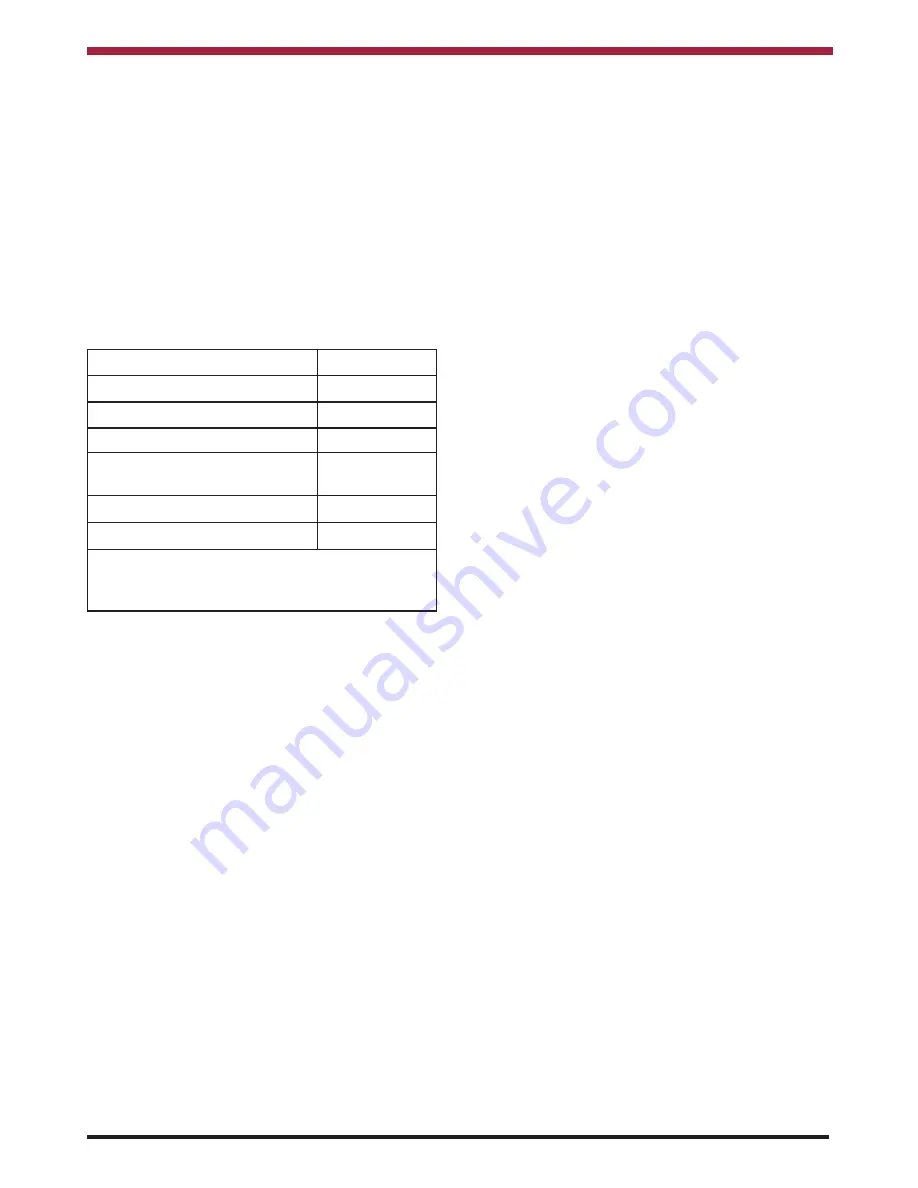
If it is found that there is excessive draught in the
chimney then a draught stabiliser should be fitted.
Fitting of a draught stabiliser will affect the require-
ment for the permanent air supply into the room.
Adequate provision e.g. easily accessible soot door
or doors must be provided for sweeping the chimney
and connecting fluepipe.
ALL FLUE INSTALLATIONS ARE THE
RESPONSIBILITY OF THE CUSTOMER.
INSTALLATION CLEARANCES
Maintain at least the following clearances to all
combustible material:
VENTILATION & COMBUSTION AIR
REQUIREMENTS
It is imperative that there is sufficient air supply to
the stove in order to support correct combustion.
The air supply to this appliance must comply with
current Building Regulations. If another air using
appliance is fitted in an adjacent room it will be nec-
essary to calculate an additional air supply.
All materials used in the manufacture of air vents
should be such that the vent is dimensionally stable,
corrosion resistant, and no provision for closure.
The effective free area of any vent should be ascer-
tained before installation. The effect of any grills
should be allowed for when determining the effective
free area of any vent.
Air vents direct to the outside of the building should
be located so that any air current produced will not
pass through normally occupied areas of the room.
An air vent outside the building should not be locat-
ed less than the dimensions specified within the
Building Regulations from any part of any flue termi-
nal. These air vents must also be satisfactorily fire
proofed as per Building Regulations.
Air vents in internal walls should not communicate
with bedrooms, bedsits, toilets, bathrooms or rooms
containing a shower.
Air vents traversing cavity walls should include a
continuous duct across the cavity. The duct should
be installed in such a manner as not to impair the
weather resistance of the cavity.
Joints between air vents and outside walls should be
sealed to prevent the ingress of moisture. Existing
air vents should be of the correct size and unob-
structed for the appliance in use. If there is an
extraction fan fitted in adjacent rooms where this
appliance is fitted, additional air vents will be
required to alleviate the possibility of spillage of
products of combustion from the appliance/flue
while the fan is in operation.
Where such an installation exists, a test for spillage
should be made with the fan or fans and other appli-
ances using air in operation at full rate, (i.e.extrac-
tion fans, tumble dryers) with all external doors and
windows closed.
If spillage occurs following the above operation, an
additional air vent of sufficient size to prevent this
occurrence must be installed.
PERMANENT AIR VENT
The stove requires a permanent and adequate air
supply in order for it to operate safely and efficiently.
In accordance with current Building Regulations the
installer will have fitted a permanent air supply vent
into the room in which the stove is installed to pro-
vide combustion air. This air vent should not under
any circumstances be shut off or sealed.
Extractor Fan
There must not be an extractor fan fitted in the same
room as the stove as this can cause the stove to
emit smoke and fumes into the room.
7
From the Front
910mm (36”)
From the Back
450mm (17
3
/4
”)
From the Sides
575mm (22
1
/2
”)
From the Flue Pipe
575mm (22
1
/2
”)
From the Back (Horizontal
Installation only)
450mm (17
3
/4
”)
Mantle Clearance
700mm (27
1
/2
”)
Side Trim Clearance
450mm (17
3
/4
”)
Brick wall minimum clearance, but allow access
for controls and servicing. See Figs
10,11,12,13,14.





































